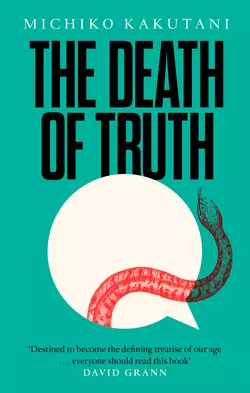The Death of Truth

Michiko Kakutani
Тип: электронная книга
Жанр: Современная зарубежная литература
Язык: на английском языке
Стоимость: 930.44 ₽
Статус: В продаже
Издательство: HarperCollins
Дата публикации: 16.04.2024
Отзывы: Пока нет Добавить отзыв
О книге: From a Pulitzer Prize-winning critic comes an impassioned critique of the West’s retreat from reason.‘The Death of Truth is destined to become the defining treatise of our age’ David Grann‘The first great book of the Trump administration … essential reading’ Rolling StoneWe live in a time when the very idea of objective truth is mocked and discounted by the US President. Discredited conspiracy theories and ideologies have resurfaced, proven science is once more up for debate, and Russian propaganda floods our screens. The wisdom of the crowd has usurped research and expertise, and we are each left clinging to the beliefs that best confirm our biases.How did truth become an endangered species? This decline began decades ago, and in The Death of Truth, former New York Times critic Michiko Kakutani takes a penetrating look at the cultural forces that contributed to this gathering storm. In social media and literature, television, academia, and political campaigns, Kakutani identifies the trends – originating on both the right and the left – that have combined to elevate subjectivity over factuality, science, and common values. And she returns us to the words of the great critics of authoritarianism, writers like George Orwell and Hannah Arendt, whose work is newly and eerily relevant.With remarkable erudition and insight, Kakutani offers a provocative diagnosis of our current condition and presents a path forward for our truth-challenged times.